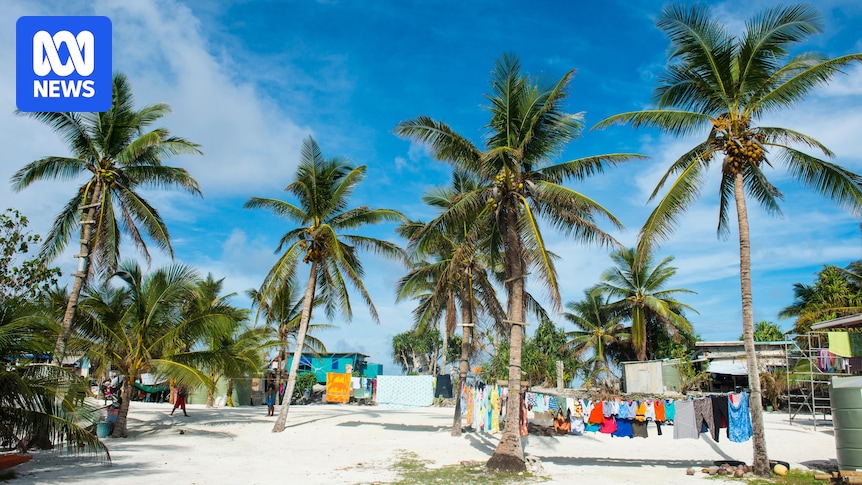
Nearly one-third of Tuvalu’s citizens are seeking a landmark climate visa to relocate to Australia, as the Pacific nation’s shores face an existential threat from rising sea levels. Australia, recognizing the urgent plight of its Pacific neighbor, has introduced a new visa program offering 280 slots annually to Tuvalu citizens under a climate migration deal hailed as “the first agreement of its kind anywhere in the world.”
According to official figures, more than 3,000 Tuvaluans have already entered the ballot for the initial round of visas. This number represents almost a third of the island nation’s population, which stood at 10,643 according to the 2022 census. The overwhelming response underscores the dire circumstances faced by Tuvalu, one of the most climate-threatened regions globally.
Tuvalu’s Climate Crisis
Scientists warn that Tuvalu could become uninhabitable within the next 80 years due to rising sea levels. Two of the archipelago’s nine coral atolls have already largely disappeared beneath the waves, and king tides frequently inundate parts of the country, including the capital, Funafuti.
In response to these challenges, Australia’s foreign affairs department stated, “Australia recognizes the devastating impact climate change is having on the livelihoods, security, and wellbeing of climate-vulnerable countries and people, particularly in the Pacific region.”
The Falepili Union: A Groundbreaking Pact
The climate visa program is part of the Falepili Union, a groundbreaking agreement signed in 2024 between Australia and Tuvalu. This pact is a strategic move by Canberra to counter China’s growing influence in the Pacific region. Under the agreement, Australia not only offers a new visa category for Tuvaluan adults but also commits to defending Tuvalu against natural disasters, health pandemics, and military aggression.
Tuvalu’s Prime Minister, Feleti Teo, praised the agreement, stating, “For the first time, there is a country that has committed legally to come to the aid of Tuvalu, upon request, when Tuvalu encounters a major natural disaster, a health pandemic, or military aggression.”
Concerns Over Talent Drain
While the visa program is a beacon of hope for many Tuvaluans, it also raises concerns about a potential brain drain. The prospect of a long-term exodus of skilled workers and young talent could jeopardize Tuvalu’s future. University of Sydney geographer John Connell cautioned, “Small states do not have many jobs, and some activities don’t need that many people. Atolls don’t offer much of a future: agriculture is hard, fisheries offer wonderful potential but it doesn’t generate employment.”
Australia’s Role in the Pacific
Australia’s involvement in the Falepili Union underscores its commitment to being a reliable partner in the Pacific. Prime Minister Anthony Albanese emphasized this, saying, “It shows our Pacific partners that they can rely on Australia as a trusted and genuine partner.”
However, the agreement also allows Australia a say in any defense pacts Tuvalu might sign with other countries, sparking concerns about the potential erosion of Tuvalu’s sovereignty. Tuvalu is one of just 12 states that maintain formal diplomatic relations with Taipei rather than Beijing, adding another layer of complexity to the geopolitical dynamics in the region.
Looking Ahead
As the ballot for the climate visa program closes on July 18, the world watches closely to see how this unprecedented agreement unfolds. The initiative represents a significant step in addressing climate-induced migration, offering a pathway for mobility with dignity as climate impacts worsen. Yet, it also highlights the broader challenges faced by small island nations in adapting to a changing climate.
The success of the Falepili Union could serve as a model for future agreements, as nations grapple with the realities of climate change and the need for innovative solutions. As Tuvaluans await the results of the visa ballot, the international community remains engaged in discussions about sustainable development and resilience in the face of rising seas.







